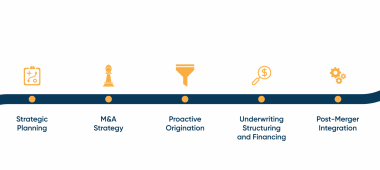About 75 percent of business owners “profoundly regret” selling their business one year after finalizing the deal, according to the Exit Planning Institute Survey. One of the prime reasons for their unhappiness is closing the sale with the wrong buyer.
After all, every seller and buyer has a certain set of goals, values and priorities. That means sellers need to carefully consider their reasons for considering a sale of a business they have built themselves, and find a buyer whose objectives are aligned with their own.
That’s a much better course of action than simply holding an auction and selling to the highest bidder. Based on our experience, a more nuanced approach can achieve a much better long-term outcome, as it improves the likelihood of a good fit with the buyer.
In some ways, selling a business is like entering into a marriage. Finding a compatible partner is fundamental to a happy, long-term relationship. In a typical deal structure, sellers remain in a financial relationship with the buyer for two to 10-plus years. Nearly 100 percent of lower middle market sellers have ties to the buyer after a two-year period and more than 50 percent of sales involve a residual financial tie greater than five years.
If you are considering selling your business, your first step should be to conduct a holistic assessment of your motives and reasons to sell, as well as identify and prioritize the primary objectives of the sale. Next, you should picture your ideal buyer and see how the potential candidates align with your own vision.
Just as a prospective bride or groom should discuss important topics such as children and religion before committing, there are a number of questions that business owners need to ask themselves and their prospective partners before signing on the dotted line:
- Are you ready to exit the business you’ve worked so hard to build?
- Is maximizing the sales price your only goal?
- Are you invested in the continuation of your business’ name and legacy?
- What will you spend your time doing after the sale?
- Do you want to relax and travel?
- Will you jump into new investments or business ventures?
- How willing are you to have continued involvement or financial exposure to the business?
- How important is fit with the buyer/investor?
- How important is taking care of your people and your business legacy in a transaction?
- Would you trade harmony for price?
- What is your confidence level in the future performance of the business?
Selling your business is a once-in-a-lifetime event that will have a continuing impact on your life and happiness, so it is important to do it right. Take the time to ask the right questions and find a buyer who will be a good long-term match for your business.















